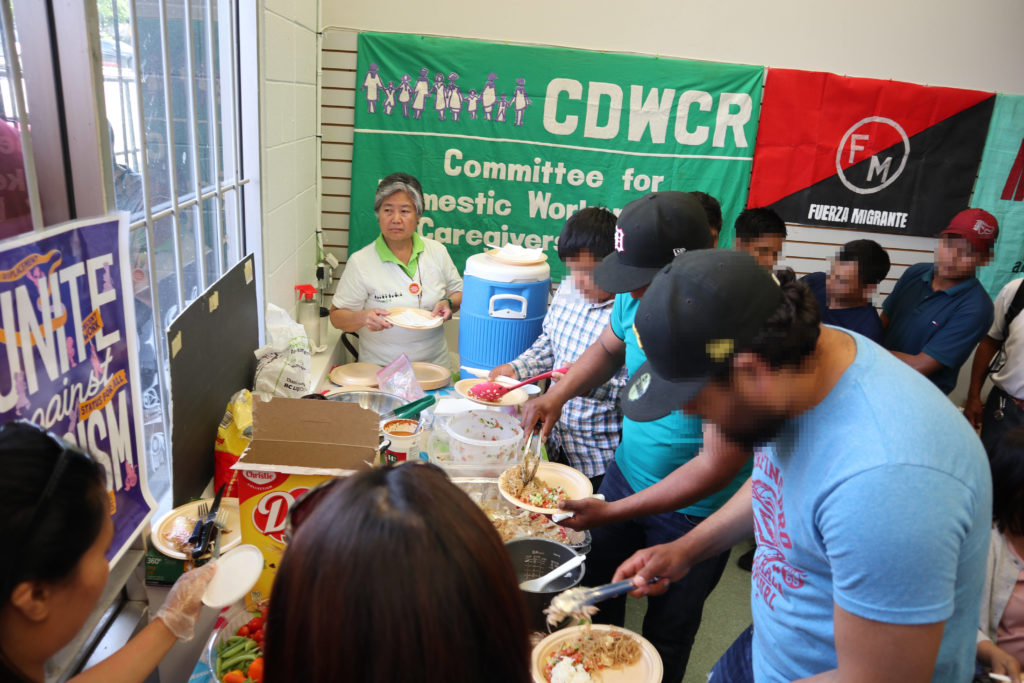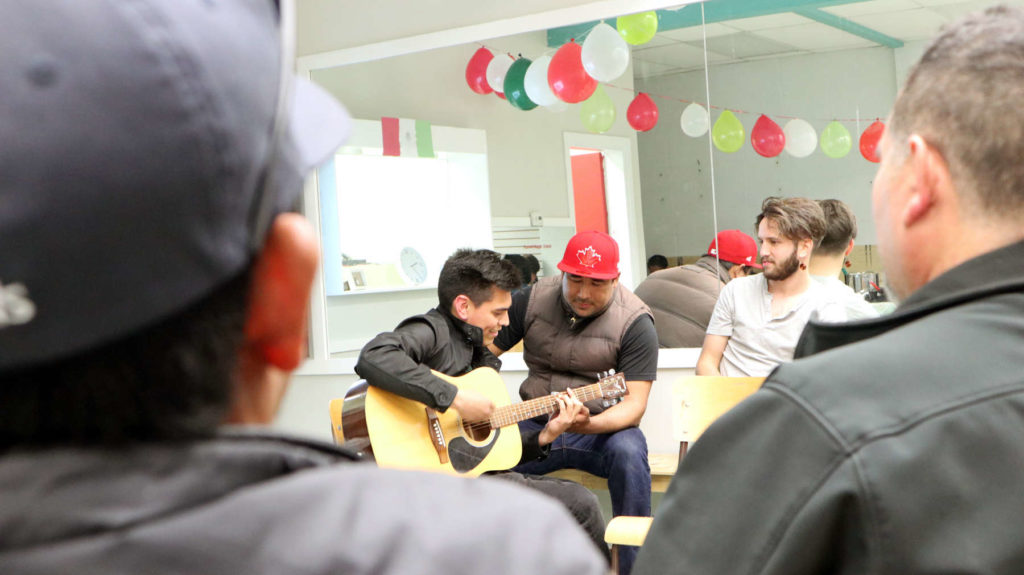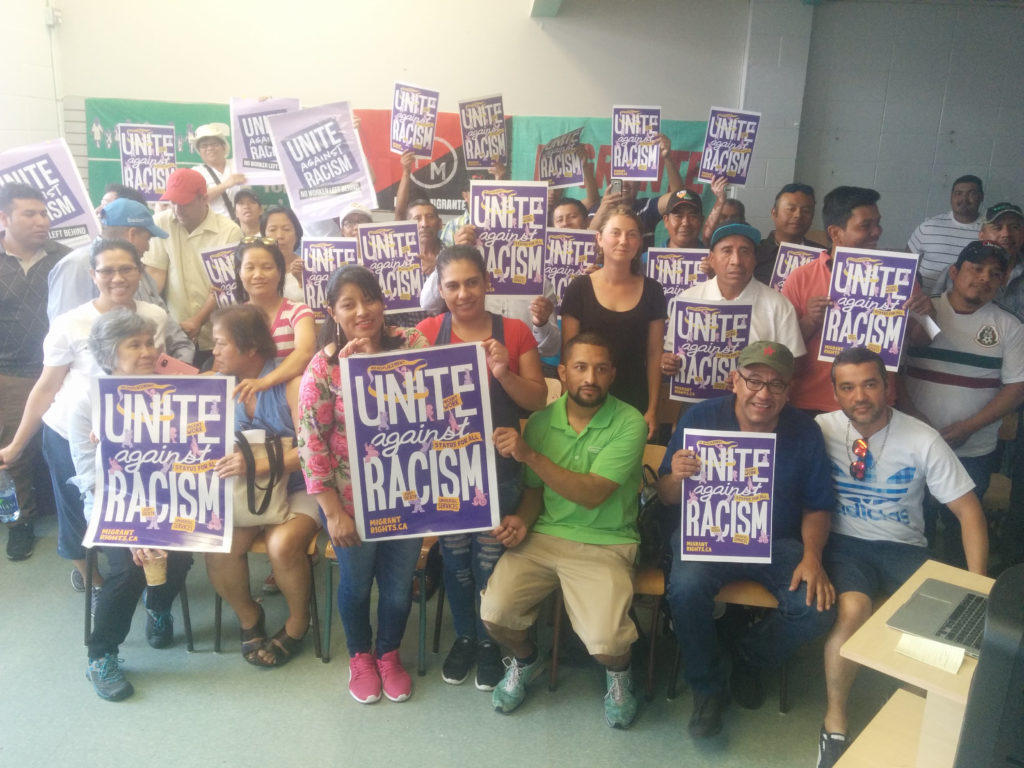Strength lies in unity, but the essence of this unity is critical. When unity is sought as a simple formality, we often fall for one of two traps: 1) the dilution of our collective work into ineffectiveness by claiming that unity is to be valued above all else, or 2) imposing the objectives, perspectives, or practices of a few over others, under the pretense that those in a position of power within a coalition or network have somehow “won the battle” for leadership. The first of these pitfalls tends to produce stagnant and self-congratulating spaces that achieve very little, but where strategic, “small victories” are sufficient to justify their existence and bury the urgent needs of folks on the ground facing oppression, exploitation, and displacement. The second, authoritarian spaces where valuable critical voices are silenced, which in turn stifles the meaningful participation of rank-and-file folks who refuse to be manipulated or tokenized.Building horizontal, politically unambiguous, and committed spaces is hard work. We are up against not only ‘exterior’ dehumanizing forces, but also dehumanizing values and practices from within ourselves. Not all of us are up for this task, nor can we ever claim to be “experts” or have found the working “formula”. This is why we, as Fuerza Migrante, do our best to remain respectful and patient when participating in coalition and network spaces. However, we have also learned that not speaking openly of the fundamental importance of process within collective spaces is counterproductive. Oppressive social relations are produced and reproduced not simply through dehumanizing language, behaviours, and practices but also the absence of humanizing language, behaviour, and practices. This is why we have decided to lay out, even if in a rough manner, what we consider to be key ingredients upon which larger associations of organizations and collectives, as coalitions or networks, can be built.
1. The network/coalition must have the interest of migrant workers at heart.
The liberatory process that Fuerza Migrante is building with migrant workers recognizes that their exploitation cannot be eliminated if others continue to determine the conditions of their lives. The interests of migrant workers are diametrically opposed to the very existence of capitalists and states. As such, any attempts at interclass solidarity are destined to failure or reactionary reformism at best. Any space established where the voices of migrant workers are “balanced out” with the interests of capitalists and imperialists can only serve to co-opt the rise of the workers’ autonomous movement, dulling the sharp, critical edge that’s needed in order to eradicate their exploitation.
2. The network/coalition must have clear and robust structures of accountability.
We refuse to participate in spaces that offer an attitude of “wait until something happens to deal with it”, and which, by inaction, overlook and enable abusive and oppressive practices.
The liberation of migrant workers requires instigating and building a process that actively challenges and eradicates power dynamics and transforms oppressive systemic issues: racism, sexism, misogyny, trans- or homophobia, among others. We must build the future today by ensuring that workers’ liberation is indivisible from the liberation of women, racialized folk, Indigenous Peoples, LGBTQ folks, and other marginalized communities. This is why we believe it is fundamental for organizational efforts to have clear and robust structures of accountability, where critique of each other can be a central focus. This type of mechanisms present a continuous challenge to the internalization of oppressive ideas, behaviours, and language, keeping individuals accountable to their organizations, coalitions or networks, and communities, promoting the growth of critical analysis and practice within the movement. These processes of accountability need to be inclusive, participatory, and reflective for all members of the movement. Further, we cannot stress enough that these processes need to be built in a multidimensional manner (also known as “intersectional”, and which we explore more in depth in our article “Multidimensional solidarity: Building migrant power means challenging hegemonic masculinity“), which can help minimize the reproduction of languages and practices of oppression, or turn a blind eye towards them.
3. Power dynamics must be made explicit, and dismantled.
Power dynamics within coalitions and networks should never be an “elephant in the room”. When some folks have access to privileges that others do not, our collective work must ensure that these imbalances are understood, and are accounted for in our protocols and processes for decision-making, taking on tasks, and assuming leadership roles. These dynamics are also linked to interpersonal relationships, as it is common that those who “like each other” can more easily support their own proposals, but dismiss those from folks they do not know, or who hold seemingly opposing perspectives and practices.
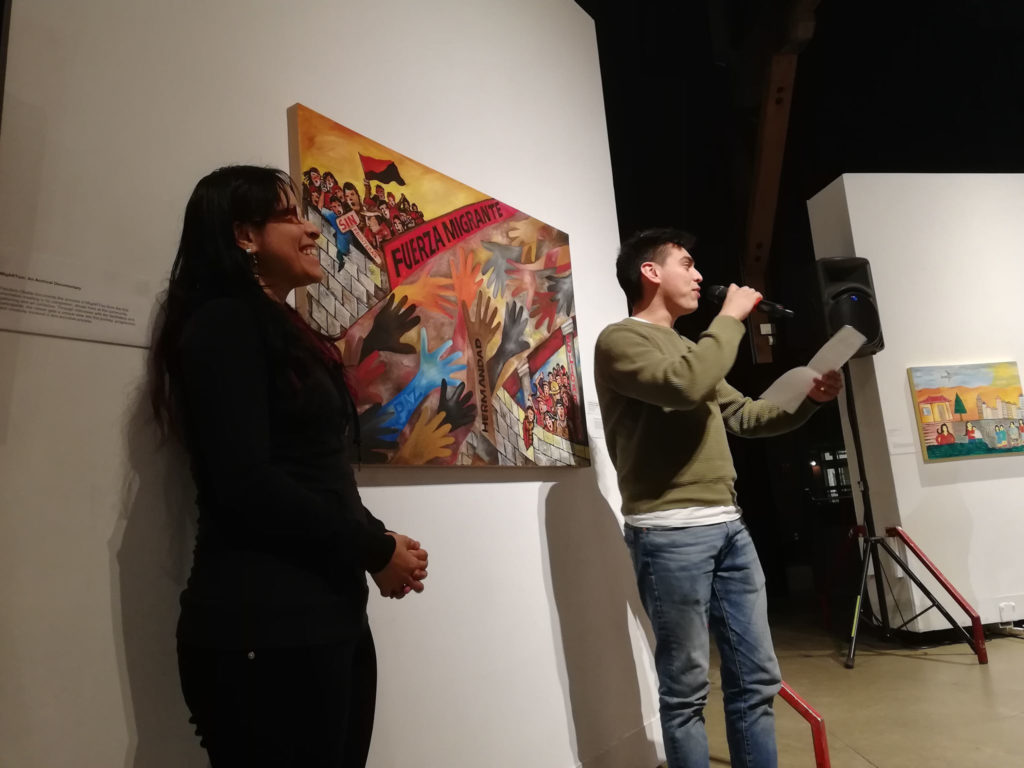
In order to build meaningful spaces of collective work, roles and tasks should be clearly defined, including the key responsibilities and amount of time a person is expected to assume a role, and this information be made readily accessible to everyone. Positions should also be rotated as much as possible. Our movements will never become stronger if the same few folks are the ones developing skills, taking on leadership roles, and expected to “do the right thing” when in these positions of privilege and power.
4. The network/coalition must have a Basis of Unity that is debated and agreed upon by all participants.
It is often the case that a network or coalition has already been formed when we are invited to join (or the opposite is true: we have already helped give shape to a space when we extend an invitation to others to join). This is of course normal, and not an issue in and of itself. However, we cannot stress enough the importance of the practice of imagining, building, and giving life to a Basis of Unity, and ensuring that all participate. When done right, this can be an exhilarating experience. To have our personal ideas and values listened to, debated, and challenged by folks who do so with respect and meaningful commitment to expand their own knowledge and understanding— this is truly one the reasons that make our gruelling, difficult work worth it!
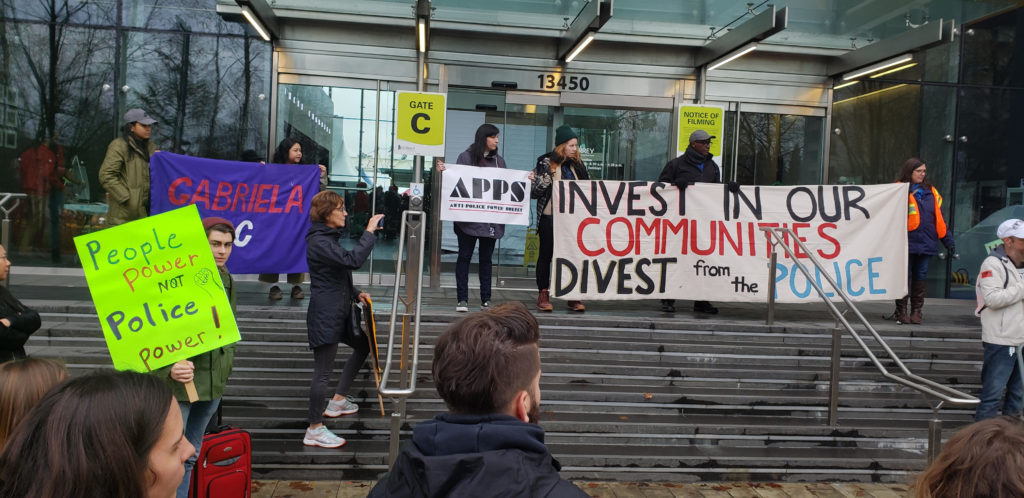
A network or coalition that builds a Basis of Unity in such a manner is setting itself up for success regardless of what they achieve in the end. By this we mean that the process is significantly more fruitful than the result. Therefore, a Basis of Unity should incorporate a regular schedule for revision and debate, so that all participating organizations and collectives can help give shape to the coalition or network, regardless of how long they have been a member of that space.
A Basis of Unity clarifies our politics. It describes in precise language what we believe in, how we think we ought to organize ourselves, and what is our relationship to oppressive systems such as the state, the patriarchy, and other power relations. An Anti-harassment/Bullying Policy And Accountability Process should work in tandem to this Basis of Unity, putting these shared beliefs into practice by clearly stating how we are to deal with oppressive behaviour within our organizing spaces. This is why both are crucial to develop and understand together, and for them to be revised often, so they also reflect our political growth as a collective and individuals. Our path should never be pre-determined or frozen in time and action.
5. The network/coalition must respect and encourage a diversity of tactics.
Unfortunately, it is too common to find spaces where some things are just not talked about, with an implicit limit to our organizing imaginations. Activities not on regular business hours? Out of the question. Find ways for those with larger budgets to fund planned activities? Can’t do it. Marching without a City permit or getting the Police’s “blessing”? On the edge of terrorism!
“Leaders who do not act dialogically, but insist on imposing their decisions, do not organize the people–they manipulate them. They do not liberate, nor are they liberated: they oppress.”Paulo Freire in Pedagogy of the Oppressed
The multi-layered and interlocking forces that keep us oppressed, exploited and displaced will never be dismantled if we stick to doing what is considered “respectable”. Networks or coalitions that “tolerate” its more radical members tend to do so in a tokenizing manner, seeking to neutralize them through various means (whether by ignoring, diluting, or co-opting their proposals). On the other hand, we understand that it never works when folks are forced to participate in activities they are not ready for.
A network or coalition that is not explicitly supportive of a diversity of tactics is one that has an agenda set by some of its members, and uses the rest for the objectives of that sub-group.
6. There should be clear mechanisms for debriefing and evaluation.
Reflection, evaluation, and criticism of our work should be incorporated as standard practice. Just as gendered oppression is so pervasive that it can appear “normal” or “invisible”, other entrenched oppressive practices can be left unchecked if we do not have spaces where we can courageously inspect our practice, language, and work.
This takes further importance when we are working collectively and want to ensure that our efforts are aligned to our political ambitions. This criticism and introspection should be thorough if we are to build safer spaces, where our anti-capitalist and anti-colonial dreams become lived realities. This can become the most challenging aspect of our interconnected struggles, but it is precisely through the recognition of power and difference that our unity strengthens. This is how we grow, resist, and create new liberatory horizons together.
This material is released and licensed by Fuerza Migrante under a Creative Commons Attribution-NonCommercial-ShareAlike 4.0 International license. You are free to share and adapt this work under the following terms: 1) You must give appropriate credit, provide a link to the license (https://creativecommons.org/licenses/by-nc-sa/4.0/), and indicate if changes were made, 2) You may do so in any reasonable manner, but not in any way that suggests the licensor endorses you or your use, 3) You may not use the material for commercial purposes, and 4) If you remix, transform, or build upon the material, you must distribute your contributions under the same license as the original.


